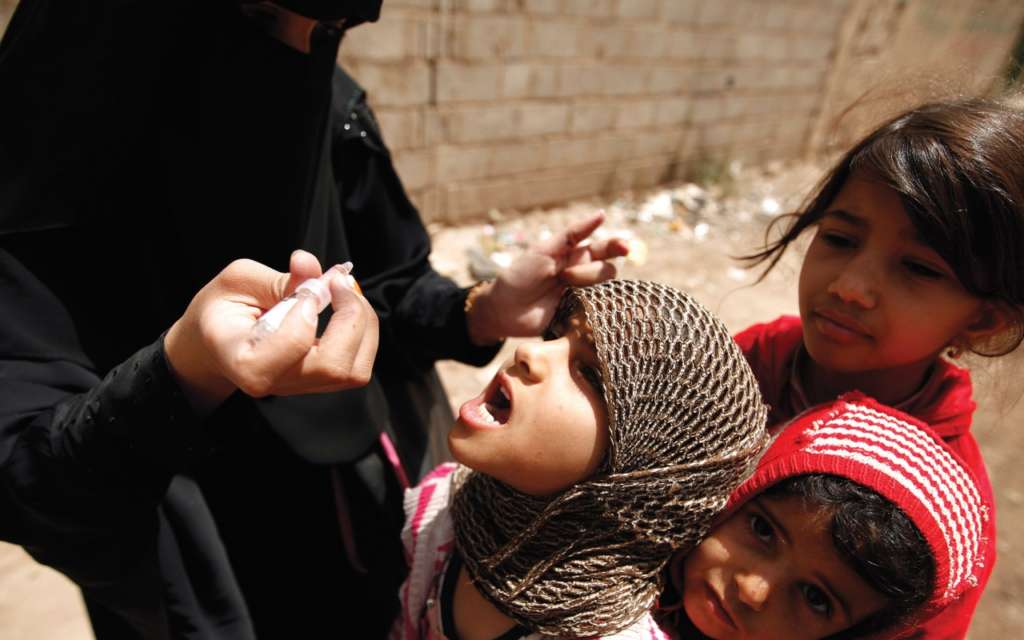Aden- UNICEF has warned that malnutrition among children in Yemen has reached unprecedented levels.
“Nearly 2.2 million children in Yemen are acutely malnourished and require urgent care. At least 462,000 children suffer from Severe Acute Malnutrition (SAM), a drastic increase of almost 200 per cent since 2014,” UNICEF said.
“An additional 1.7 million children suffer from Moderate Acute Malnutrition,” the agency said in a statement, a copy of which was obtained by Asharq Al-Awsat.
According to UNICEF, the situation of severely malnourished children in governorates such as Hodeida, Saada, Taez, Hajjah and Lahej is most critical. These five governorates put together have the highest of all SAM cases in the country.
Saada, which is the stronghold of Houthi insurgents, also has the world’s highest stunting rates amongst children with an unprecedented eight out of 10 children in some areas being chronically malnourished.
“Malnutrition in Yemen is at an all-time high and increasing,” said Dr. Meritxell Relano, UNICEF Acting Representative in Yemen. “The state of health of children in the Middle East’s poorest country has never been as catastrophic as it is today.”
“Even before the escalation of the conflict in March 2015, Yemen faced challenges from widespread poverty, food insecurity and a dearth of health services. Now Yemen’s health system is on the verge of collapse,” UNICEF said.
“Less than a third of the country’s population has access to medical care. Less than half of health facilities are functional. Health workers have not been paid their wages for months and aid agencies are struggling to bring in lifesaving supplies because of the political deadlock between the warring parties,” said the statement.
According to the agency, at least one child dies every ten minutes in Yemen because of preventable diseases such as diarrhea, malnutrition and respiratory tract infections.
“Violence and conflict have reversed significant gains made in the last decade in the health and nutrition of Yemeni children. Diseases such as cholera and measles have spread and, with few health facilities functional, such outbreaks are taking a heavy toll on children,” said Relano.
“We call on parties to the conflict to give us unhindered access to children in need across the country so we are able to deliver nutrition supplies, treat malnourished children and support Yemen’s health services,” Relano added.
UNICEF spokesman in Yemen, Mohammed al-Asaadi told Asharq Al-Awsat that the international community should not stand idle towards the humanitarian situation in Yemen, in particular the condition of children.
Al-Asaadi urged all sides of the conflict to distance children from conflicts and reach a peace agreement that would end the war in the country.
The agency said that “in 2016, UNICEF has supported the treatment of 215,000 children suffering from SAM across Yemen and provided more than 4 million children under the age of five with vitamin supplements to boost their immunity. But this lifesaving work remains hindered by the shortage of funding and limited access to areas caught in the fighting.”
It added that “funding continues to be a challenge. In 2017, UNICEF needs US$70 million to provide the much needed nutrition services to mothers and children across the country.”
